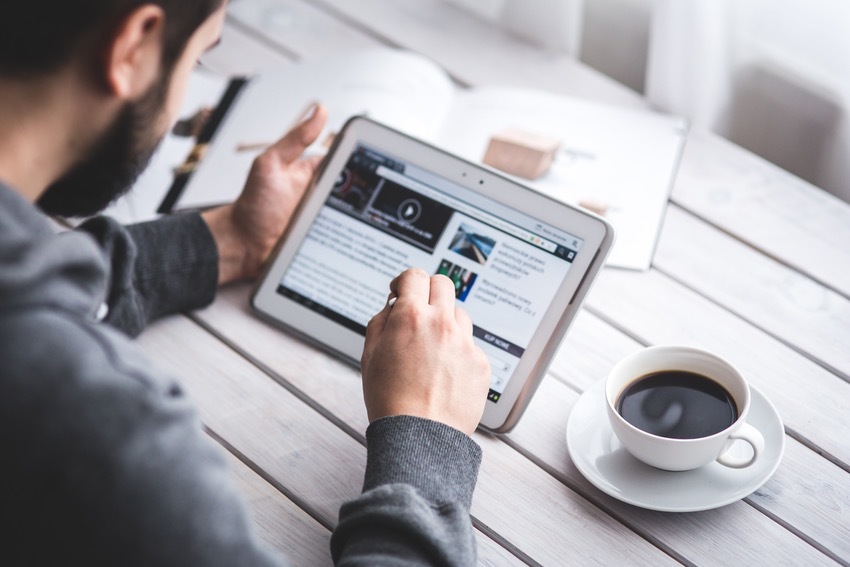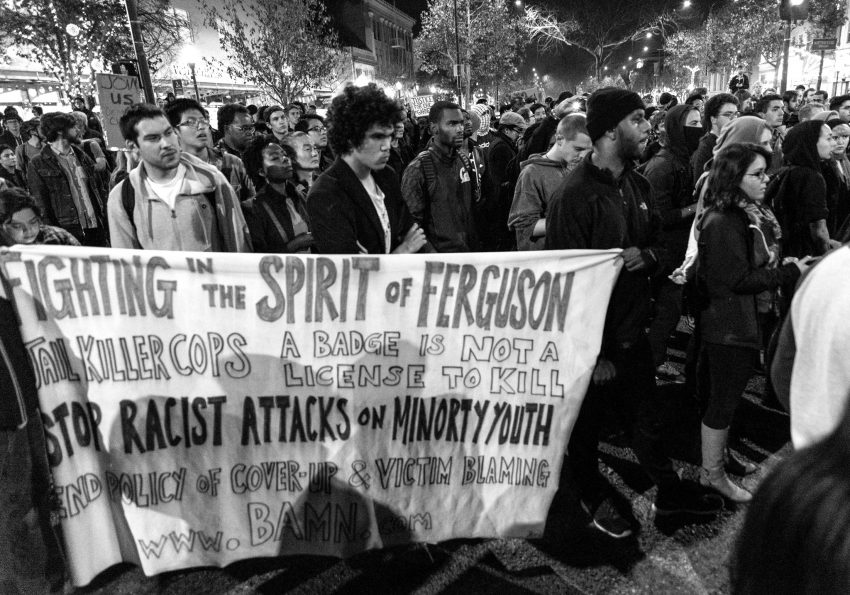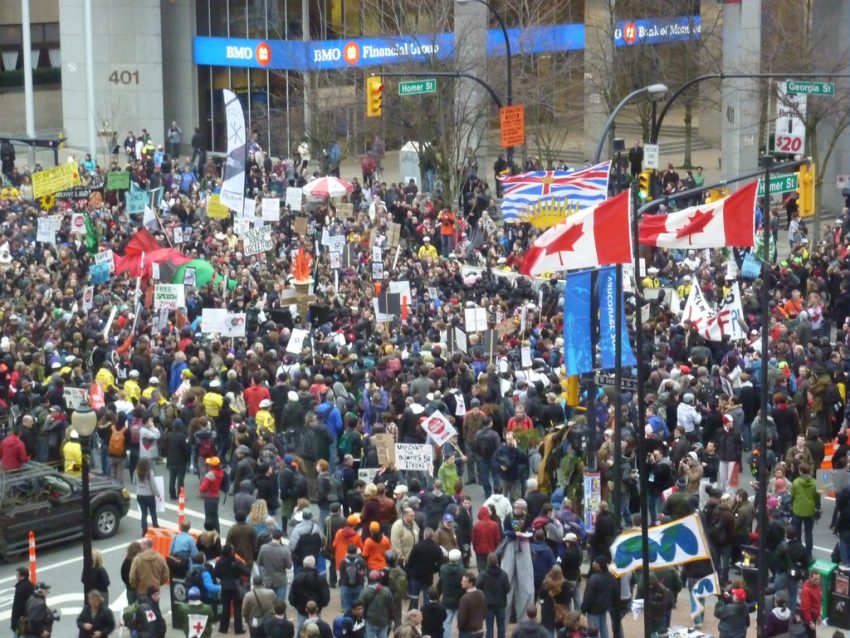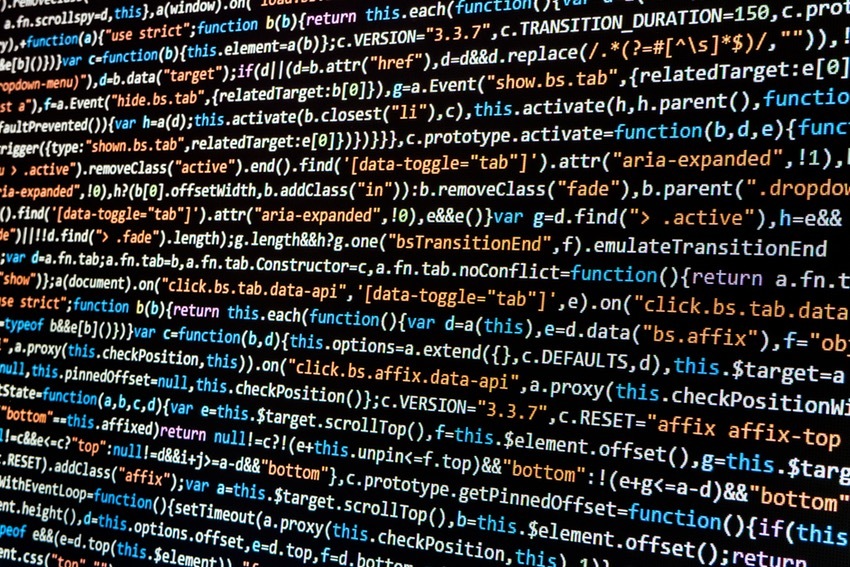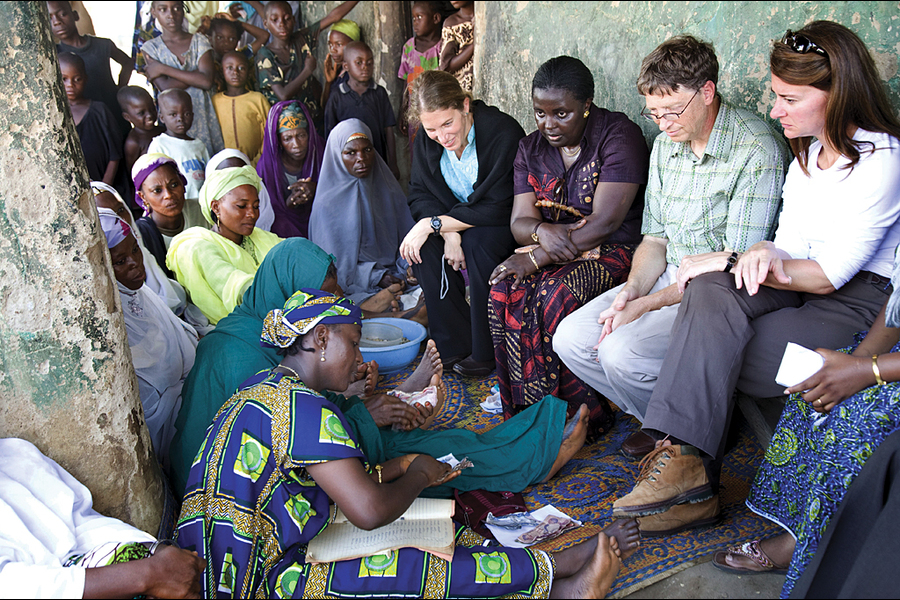Without access to constantly-updated and relevant information not hindered, and without power to peacefully and effectively respond to injustice, problems, challenges, and opportunities, one is a pseudo-citizen that is a weakened agent being unable to act as critically-literate, politically-engaged and socially-connected in order to transform his or her own future. In its very basic relation to those capabilities of citizenship, to have a say is the most needed, and mostly sole, nonviolent step towards well-being, freedom and rights especially for the “powerless” or “more disadvantaged” persons. So, in this piece of theory and advocacy, I want to tell you about the why and how of gaining, progressing and sustaining such powers of Freedom of Expression and Information.
…“such a Freedom of Expression and Information” is in any individual’s real (even if not perceived) self-interests…
In order to do so, I’ll present a normative understanding of Freedom of Expression and Information by framing it, and by demarcating it from some misleading conceptions that enable/cause many unnecessary restrictions, and/or, in fact, are exploited by problematic forces and authorities using deception. Otherwise, it would not be clear what I suggest to value and prioritize. In addition, I’ll argue that “such a Freedom of Expression and Information” is in any individual’s real (even if not perceived) self-interests, and that it is an indispensable and inalienable requirement for meeting the need for protecting and enhancing one’s own autonomy against any problematic (state or non-state) interferences, coercion, manipulation, violence, and any violation of the human rights.
Also, I’ll try to strengthen this justification/basis in order to move towards other significant possibilities than “autonomy-argument” by resorting to the social and individual needs for building a tolerant society, self-development, self-government, search for truth, and social progress in relation to one’s own real self-interests as one’s own well-being-span and life-span enhancement possibilities. Finally, for this freedom to survive and flourish, I’ll provide some critical suggestions like “Blasphemy laws must be immediately abolished globally”.
Photo Credit: Pexels
In an age of “post-truth cynicism” (i.e., to my definition, “making decisions based on perspectives frequently devaluing science, facts and evidence in favor of some ideological/powerful/status quo positions/views that serve one’s own personal gain through ignoring such scientific approaches, facts and evidence that can refute those, and through conforming to/obeying messages/dynamics/mechanisms of power-politics”), increasing human rights violations, and “anti-science and anti-ethics politics”, how to regain (and/or not lose) our autonomy capabilities, and how to realize and defend our global human rights? Can we become and stay optimistic at least to be able to be active on protecting our own rights, freedoms, and interests?
To me, as global citizens, we (still) have some possibilities to alter this problematic direction (even at global levels) through developing deliberate plans and actions, building awareness about the facts and mechanisms that are effective for such purposes, and actualizing more and more (quality) cooperation based on such awareness and deliberations. This sort of awareness, deliberations, and cooperation necessarily require a fundamental freedom: “Freedom of Expression and Information”. Especially in this sense, I’ll defend it by showing that it is primarily and irreplaceably required for any individual’s own real self-interests.
Related article: “SELECTIVE EMPATHY AND THE MEDIA’S RESPONSIBILITY TO ALL AMERICANS“
For defending such an understanding and a deliberate conception of Freedom of Expression and Information as a right that is enjoyed solely in its individual and/or systemic realizations that are recurrent and progressing applications and/or implementations of it, I present the arguments below:
Protecting yourself as a citizen from State
Let’s begin with States with their “possible” threats to our freedoms and rights. At least by experience or by history, we all know that states are not infallible. Unfortunately, in practice, every state violates many of global human rights and civil rights of its citizens, and even disproportionately among its citizens. As a result of it, as citizens, individuals in any state need autonomy, thus the effective means to protect their own rights in such situations, consequently, freedom of expression to show such violations and discrimination against themselves, and freedom of information to acquire the effective means to prevent or reduce such violations and discrimination against themselves. Otherwise, we would fail to hold officials accountable for their wrong-doings against our own real self-interests (including human rights).
…any state can have any laws against global human rights…
This fundamental protection implies human rights that ensure there must be no sacrifice of any individual’s interests/rights to the majority’s, State’s, a group’s or any other individual’s interests, and/or to any religion-“protection” or ideology-“protection”. So, to facilitate/protect/build/develop such rights and systems that ensure those rights, this freedom is paramount.
In terms of such self-protection, domestic laws that are not compatible with “international laws/global human rights” must not restrict our content, style and tools as ways of expression and information. Because any state can have any laws against global human rights and hence violate human rights, at least in theory. But this must be prevented.
Influence on policy-making, and culture
…we need expressing our opinions, criticisms, questions, positions, arguments etc….
(Engaged and concerned) citizens constantly need to impact policies, laws and institutions especially for responding to any regulations, systemic changes, changing-conditions, various scientific progress, and because of any opportunity awareness based on their own changing needs and expectations. This can be thought about cultural issues and social norms (and hence about impact on/response to them) too. As a consequence, we need expressing our opinions, criticisms, questions, positions, arguments etc., and being informed about such incremental, transformational or adaptive changes and related possibilities.
Global Social Progress
As a tool, the right to Freedom of Expression and Information is an integral mechanism of self-development, self-government, “ethical” governance, building a tolerant society, “search for truth” and autonomy, and consequently, for social progress, human development, global development, and thus one’s own real self-interests (and hence “Ethical-Possibility-Enhancement”). To prevent/reduce any problems caused by state or non-state actors/factors, we need to identify and express those problems for developing quality responses and sufficient/immediate solutions, and for the needed support, collaboration, and “information/knowledge/opinion exchange” toward those solutions. Information (receiving and seeking) and expression (giving, showing, disclosing, imparting, and publishing etc.) are interdependent and complementary freedoms/actions. They require each other in order to enhance their possibilities in more effective ways.
 In the Photo: Oakland and Berkeley #Black LivesMatter marches, Dec 2014 – Photo Credit: Annette Bernhardt
In the Photo: Oakland and Berkeley #Black LivesMatter marches, Dec 2014 – Photo Credit: Annette Bernhardt
Plus, to our considerations of how problematic the targeted matter/status quo is or how immediately-needed the alternatives are, we need freedoms/opportunities/systems that ensure/advance the right to offend, shock, disturb any state or any organization/entity/person without resorting to deliberate disruptive frequencies. Primarily because we need such transformative criticisms and social change awareness tools. At the same time, like the need for/right to being not deliberately disrupted frequently that would violate many human rights, such tools and systems must consider to enhance possibilities of any quality infosphere for strengthening this freedom.
However, in favor of this freedom, it must be achieved without censoring “fake news or disinformation”. To overcome “fake news”-like low-quality and problematic effects on our infosphere, we have to research and develop more-advanced tools and systems than censorship. Otherwise, unfortunately, such a censorship can be possibly exploited by governments for the sake of their problematic/false goals that violate human rights. We have to prevent our/any governments from doing it to us/others.
Related article: “BERKELEY TO BEIRUT: FIGHTING FOR REFUGEES 7,000 MILES AWAY“
Framing Against Unnecessary and/or False Restrictions
There are some common limitations used to ensure us to avoid/prevent/counter/respond problematic/false restrictions. In my view, even these are not sufficient for securing our freedoms so I’ll suggest my original demarcation deliberation as a way of reducing restrictions due to misrepresentation, false terminology, and/or misleading conceptions of this freedom (if not cynical deceptive manipulation), but first, for their some usefulness, let us look at those principles of limitation:
- Legality: It implies written basis, and compliance with international law and global human rights standards, and sufficient precision (against vagueness: otherwise, state or nonstate actors may violate one’s own rights and freedoms, and this must be prevented).
- Necessity: It implies proportionality of restrictions, and protection of social needs protecting any individual (without sacrificing any individual’s rights/interests). In other words, it means well-defined response to a justified need.
- Valid Grounds: Protection of rights of others, (National) “Security” (only if it directly and precisely facilitates or causes some violence or attack-risk, and never if the state will violate any global human rights), and public health (including childhood and mental-health-sensitive issues).
Demarcation of it (for enhancing it)
In the Photo: Peaceful Protest in Canada – Photo Credit: kcxd
Of course, one’s style and strategies may be diplomatic. My style too is so because I value and love it. But yet, even if you too, it does not mean that you don’t need to protect and promote the right to express opinions/ideas that can be even offending, shocking others/states/authorities, including hateful speech, excluding the ones promoting/implying/inciting “physical/sexual violence or any human rights violations”. Because by this way, we understand the current opinions and have the opportunity to build a tolerant society for our own self-interests, and the possibilities to improve current motivations and discussions. As a result, it’s a requirement for quality citizenship.
Whereas there is such a primary need for a sort of “extreme” toleration that must be always met, some form of pseudo-speech that is in fact not a speech must be understood apart from such a toleration and freedom, meaning the ones directly offering the use of violence and some other human rights violations. This is still a little bit obscure and vague. For this reason, first, I’ll provide some terminology and my definitions that clarify relevant differences, and then try to demonstrate the usefulness of related distinctions and how they matter. Before that complexity, what is obviously true (already reasoned) is that intimidation, incitement, and threats are not acceptable in any circumstance. These must be restricted.
They are not like legitimate deterrents because they are not about legitimate use of means of punishment or law enforcement.
In fact, they are not expressions of opinions. Rather, they are problematic/criminal tools to use/generate violence as a hypothetical tool. They are not like legitimate deterrents because they are not about legitimate use of means of punishment or law enforcement. So, apart from hateful speech that (in my definition) does not use such hypothetical tools, these are like hate crimes by means/triggerings of speech. As a consequence, my main distinction between “hateful speech” and “hate crime” is that (nonviolent implications versus violence-effect-probability criterion). By this consideration, to protect ourselves against intimidation, incitements and threats, I think that we are now ready for the steps toward a successful demarcation:
“Hate crime” is not okay. It has an expression used to invite/influence/cause/manipulate/convince/dictate/incite/impact oneself and/or others directly generate violence by increasing the probability of that criminal outcome for a cause of hate and independently from the receiver’s/manipulated person’s toleration-capacity (and cultural background) excluding mental-health-situations.
Examples:
“Let’s kill black people.” (increasing objective probability of physical violence) (hate crime)
“Men have a right to beat women/their wife.” (hate crime)
“It’s okay to rape a Buddhist.” (hate crime)
“Fire your Syrian employees.” (not necessarily but especially when said by powerful ones, authorities, officials) (hate crime) (losing your job affects your well-being, prosperity etc., so it, as an unfair discrimination, violence too)
Speech acts like these are/must be criminal acts, and (in fact) do not belong to a quality conception of freedom of expression, therefore, must be criminalized, prohibited, and socially addressed by systemic interventions.
By contrast,
“Hateful speech” is permissible, and must be necessarily considered as a right to freedom of expression. In terms of demarcation, it excludes any intimidation, threat, incitement and other violent hypothetical-tools that are in fact “Hate crime”. Hateful speech just implies hate in a speech.
Examples:
“I hate black people.” (hateful speech)
“Women are stupid.” (hateful speech)
“Buddhism makes a person an idiot.” (hateful speech)
“Syrians are not humans.” (hateful speech)
However, the term “Hate speech” obscures such theoretical distinctions, and creates space especially for authoritarian governments and religious positions to restrict/prohibit critical expression and information. In other words, it’s easily exploited for problematic objectives because the term “Hate speech” can imply both “Hate crime” and “Hateful speech”. To avoid/prevent that, we must abandon the term “Hate speech”, and we must continue to deliberate over the possible distinctions between “Hate crime” and “Hateful speech”. Once again, “terminology, formal definitions, deliberations, and theoretical distinctions matter”.
…they have such violence prescriptions, designs, and/or implications…
I want to add that censorship too is not acceptable if the product in question does not have any physical violence prescription/design/implication as in hate crime. So, in relation to it, any terrorism-content must be censored (because they have such violence prescriptions, designs, and/or implications). But otherwise, censorship must be unconditionally prohibited/prevented/demoted in any way.
And here I “need” to “express” that all blasphemy laws must be immediately abolished globally for this freedom to survive and flourish, and for us to transform our world in progressive ways more and more.
Related article: “MY SYRIAN REFUGEE EXPERIENCE”
Against reputational cascades, and for joy and art
We need systems/rights/freedoms that are against any restrictions related to “reputation or obscenity or artistic expression”, if they are not in conditions of childhood or any mental-state-sensitivity. For the needs for aesthetic joy and criticism possibilities that require to reduce reputation-bias for social change, we should consider to abolish reputation-related restrictions.
Progressing and Recurrent Realizations
Photo Credit: Pexels
Understandings and realizations of Freedom of Expression and Information must be always tried to enhance by updating and upgrading it thanks to new knowledge, new deliberation, new information, and changing-conditions’ new requirements: It does not imply “absoluteness”.
Realizations must be always produced again and again. So, they require continuous, recurrent and progressing efforts, autonomy, and freedom mechanisms against the possibilities of such mistreatments/wrong-doings by any state or any other.
In any real case, defending/promoting any other individual’s or organization’s this freedom is the most effective way to protect one’s own such freedoms by strengthening such support mechanisms and understandings of others for any possibility in the future.
Global Citizens, and the SDGs
Photo Credit: Pexels
In my view, as global citizens, we must defend (global) Freedom of Expression and Information (FoE&I). This freedom is fundamental to any of our challenges, problems, and opportunities. Without the right and opportunities to communicate any issue precisely and effectively, we cannot achieve our goals and we cannot realize our very human rights and freedoms. In such a communicative and informative sense, truth-seeking , evidence-seeking and expressing our opinions are paramount. We also must build tolerant societies to prevent violent conflicts. Therefore, “offensive” expressions and the right to receive them are crucial to develop this sort of very needed toleration systems and capabilities. So, I say, we must defend and try to enhance our very fundamental FoE&I.
As closing words, I want to highlight that all the SDGs need such a strong position of Freedom of Expression and Information, and that realizations and progress of this right will always need realizations of the SDGs.
Recommended reading: “MORE THAN HURT FEELINGS: THE REAL DANGER OF HATE SPEECH“


